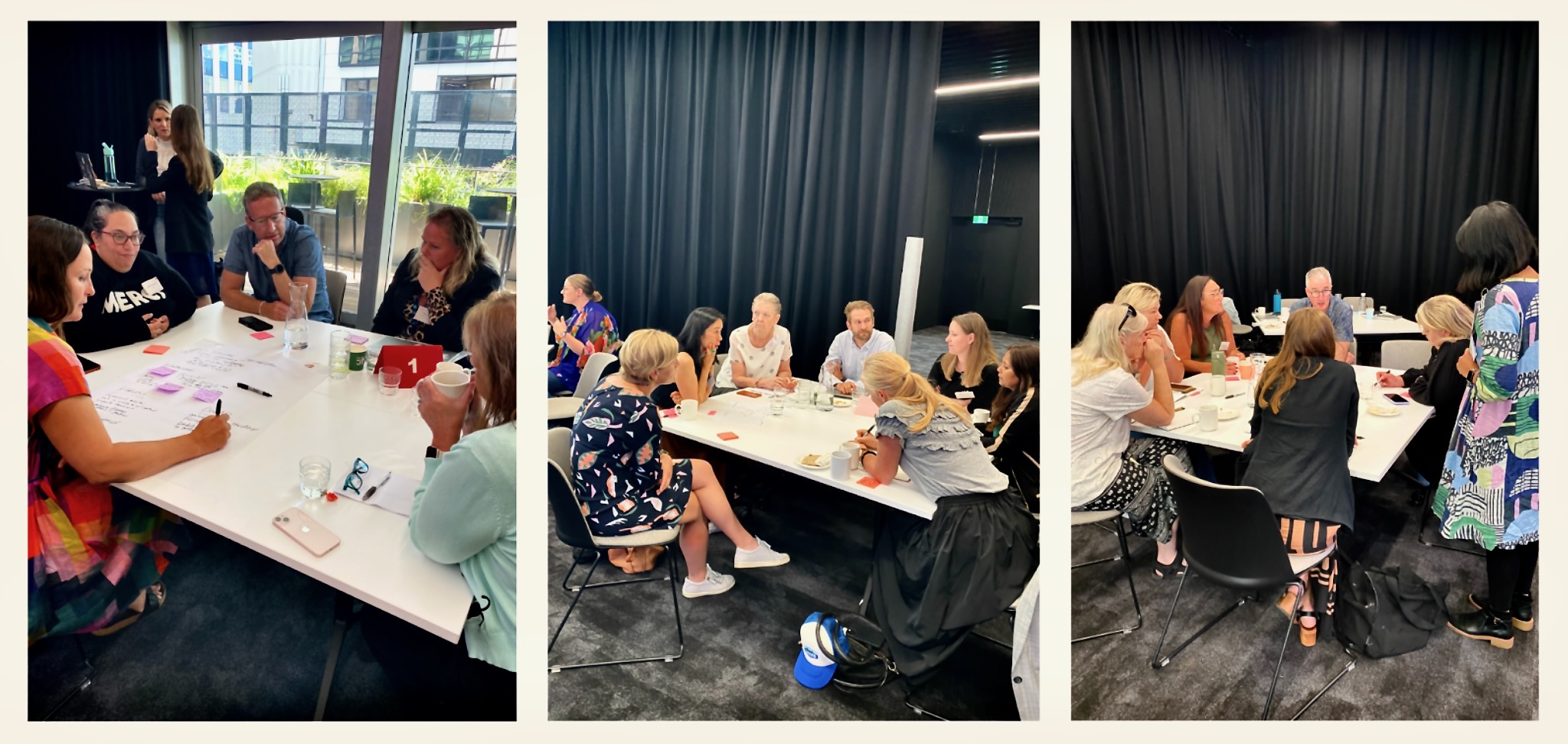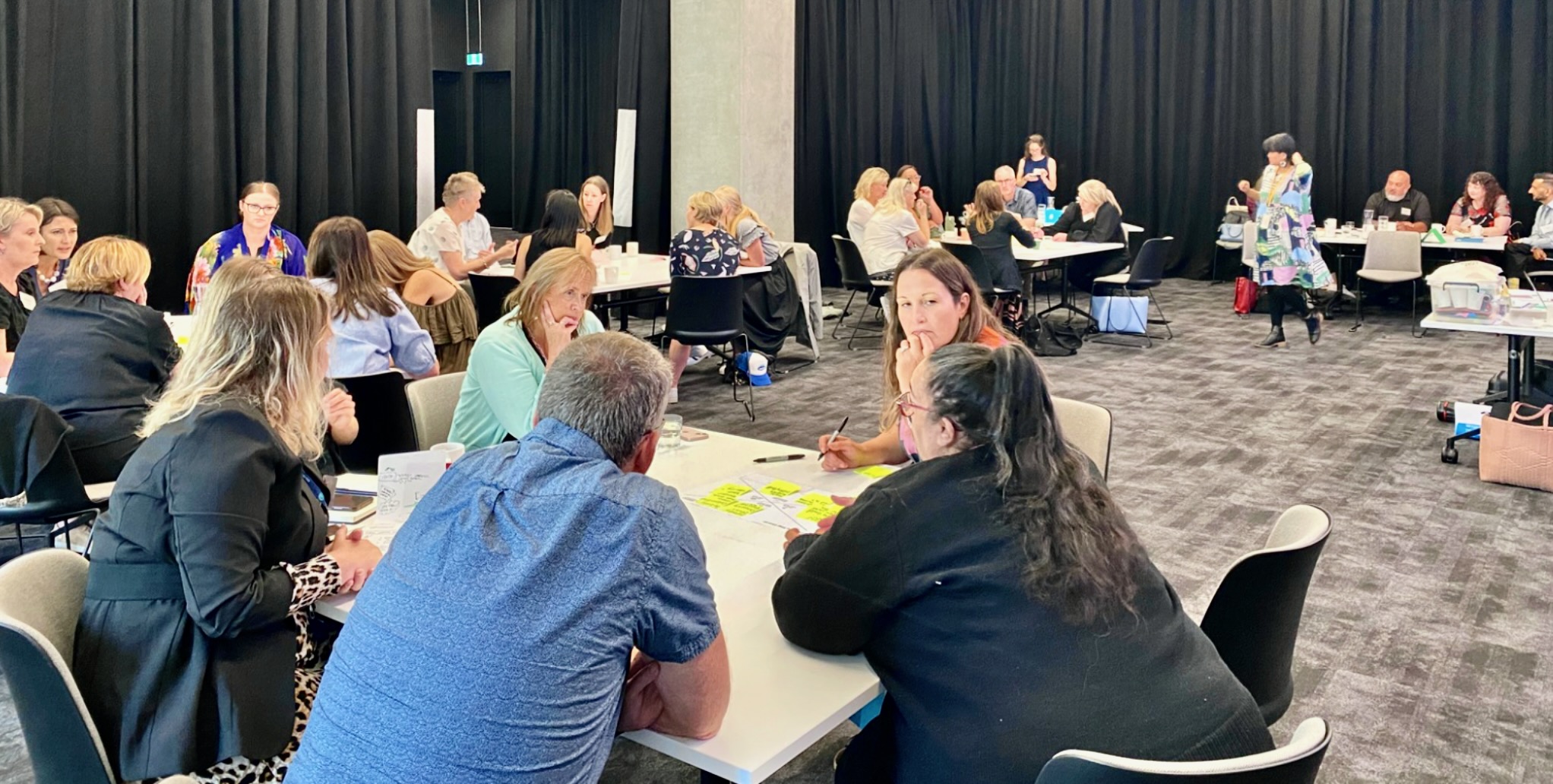AREAS OF IMPACT
Private Sector
Service
Education & Capability Building
Scaling & System Change
Social Behaviour Change
HCD & Service Design
STUDIO
Background
Thriving Communities Aotearoa (TCA) believes the companies that keep our lights on, connect our phones, and process our everyday payments hold enormous power to improve the wellbeing of whānau under financial pressure. Essential service providers touch almost every person in New Zealand, so even small shifts in policy or practice can ripple widely. TCA’s kaupapa focuses on customers experiencing hardship or debt, with a particular emphasis on two often-overlooked groups:
- Whānau in the first 2000 days – the crucial window from conception to a child’s fifth birthday when financial stress can have lifelong impacts.
- People experiencing economic harm – where someone’s access to money and/or participation in financial decisions is being controlled, restricted or removed
By bringing businesses, community advocates, and subject-matter experts into the same room, TCA aims to spark systemic change in the way essential services design products, policies, and customer journeys.
The Challenge
Early in 2025, TCA set out to run a development sprint that would:
- Expose customer experience leaders from energy, telco, banking and other essential services to recent insights on economic harm and the first 2000 days.
- Move from insight to action—co-designing concrete opportunities these organisations could pilot or scale to better support financially stressed customers.
TCA needed a facilitation partner who could:
- Create a psychologically safe space for commercial and community voices to meet as equals.
- Blend learning with hands-on design so participants left with prototype solutions, not just a list of good intentions.
ThinkPlace was invited to design and host the sprint. Our proven Four Voices of Design framework; balancing the voices of ‘Experience, Expertise, Design, and Intent’ offered the inclusive platform TCA was seeking.
The Approach
We co-created a three-part sprint journey:
| Phase | Format | Purpose |
| 1) Subject-matter expert webinars | Deep dives into Economic Abuse and The First 2000 Days with researchers, community advocates and lived-experience storytellers. | Level-set participants’ understanding; gather provocations and initial ideas. |
| 2) Full-day co-design sprint | Structured around ThinkPlace’s sprint playbook: whakawhanaungatanga, empathy exercises, idea generation, clustering ideas, rapid prototyping and reflection. | Convert insight into six collaborative prototype concepts. |
| 3) Overall synthesis & reporting | Mural boards, prototype canvases and a succinct insight report captured by the ThinkPlace team. | Ensure momentum and accountability for post-sprint action. |
The in-person day was paced as two mini-sprints: one for each social issue, so every idea stayed grounded in real-world customer stories.

Key Outcomes
By the end of the day participants had produced six collaborative prototypes, each with a brief description of the idea, key beneficiaries, early success metrics and next-steps:
- Triage & Connected-System Interventions
A privacy-aware information-sharing portal enabling banks, power retailers and community agencies to coordinate rapid support so customers tell their story only once. - Identification & Needs Assessment
‘A “financial hardship” flag on credit reports’ triggered by verified frontline agencies, that prompts lenders and utilities to pause debt collection and offer tailored assistance. - Collaboration & Policy Change Coalition
A multi-agency working group to advocate for regulatory shifts (e.g. quicker relationship-property settlements, an Enduring Power of Attorney register) that would reduce economic harm. - Awareness Hub
A one-stop, AI-enabled tool that matches customers, or the staff helping them to the right rebates, hardship grants and community services in minutes. - Capability & Training Toolkit
Mandatory “vulnerable-customer” training, on par with privacy training for all essential-service frontline teams, backed by a shared library of best-practice policies and conversation guides. - Relief Packages
An accord allowing accredited financial mentors to negotiate deferred or reduced debt directly with multiple utilities on a customer’s behalf, breaking the cycle of accumulating arrears.
Participants rated the sprint highly for its pace, action orientation and cross-organisational collaboration. One attendee captured the mood perfectly: “I like how we ended up with real, practical ideas to pursue.”
The Impact
The prototypes are now moving into validation and pilot planning. Over the coming months we’ll track:
- Adoption: the number of organisations signing on to resource, test or co-fund each idea.
- Customer benefit: reductions in debt escalation, service disconnections or repeat hardship disclosures.
- Sector learning: new data, stories and relationships that fuel further collective action.
- Ongoing impact: of bringing people together, galvanising the sector and providing intentional opportunities to learn from one another.
We’ll update this section once pilots launch and early results emerge, but the sprint has already built a powerful coalition. As one participant reflected, “Kotahi te aho ka whati, ki te kāpuia e kore e whati. One flax strand breaks, but many woven together stand strong.”
Why it Matters…
Financial stress undermines health, relationships and children’s development. Essential service providers cannot solve these social issues alone, but they can remove the avoidable painpoints embedded in their own systems, and use the tools they have to help identify issues and provide support within their services. By convening diverse voices and turning insight into prototypes in just one day, the Thriving Communities co-design sprint shows how quickly progress is possible when sector rivals become collaborators.
Keep an eye on this space: we’ll report back as the pilots roll out and share what we learn about designing fairer, more empathetic services for every whānau in Aotearoa New Zealand.
The March Sprint for Thriving Communities Aotearoa was a great success thanks to Jade and Annabelle’s expert planning and facilitation. They created a safe, inclusive environment that brought together diverse voices — from community advocates to business leaders — in a way that was purposeful and energising.
Feedback on both the webinars and in-person workshop was rated very highly. We were left with clear direction and a stronger foundation for change. Jade and Annabelle’s thoughtful stewardship made all the difference, and we look forward to working with ThinkPlace again. – Kate Thomas, General Manager, Thriving Communities






